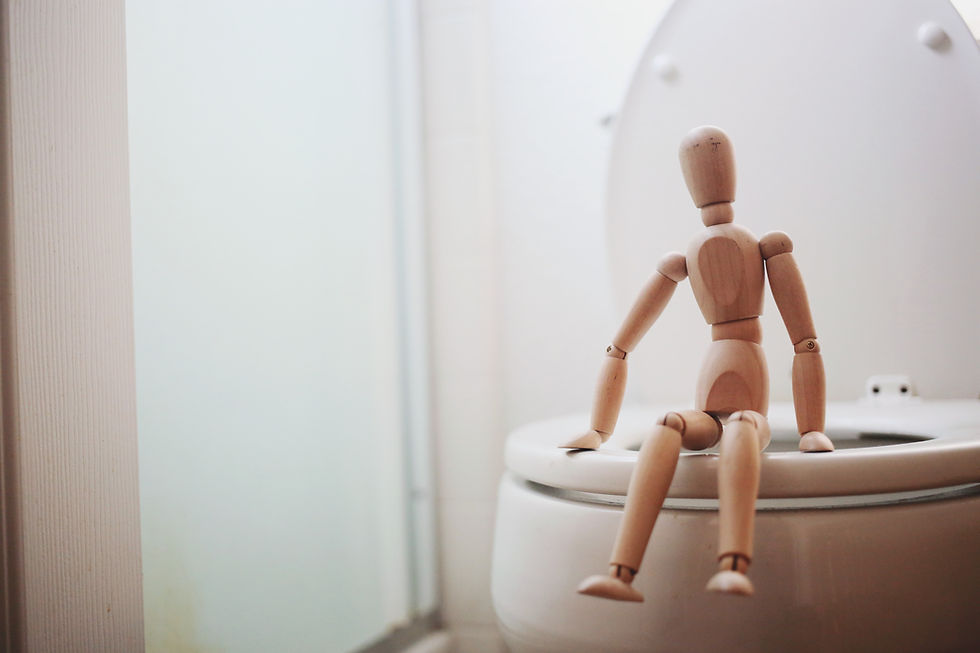Wake up, Pee, Repeat: Understanding and Managing Nighttime Urination
- Eric Han
- Jul 26, 2024
- 2 min read
Updated: Aug 24, 2025

Nocturia, the need to wake up multiple times during the night to urinate, can be a disruptive and bothersome condition.While it often becomes more common with age, it can affect people of all ages. This article will explore the causes, symptoms, and treatment options for nocturia.
What is Nocturia?
Nocturia is defined as waking up at night to urinate, with each urination episode preceded and followed by sleep. It's considered clinically significant if you wake up to urinate two or more times per night.
Causes of Nocturia
Several factors can contribute to nocturia, including:
Increased nighttime urine production: Conditions such as heart failure, diabetes, and sleep apnea can lead to excess urine production at night.
Reduced bladder capacity: An overactive bladder or age-related changes in bladder function can decrease bladder capacity, causing more frequent urination.
Sleep disturbances: Conditions like restless leg syndrome or insomnia can disrupt sleep and increase the perception of needing to urinate.
Medications: Certain medications, such as diuretics and some blood pressure medications, can contribute to nocturia.
Symptoms and Impact
Nocturia can significantly impact your sleep quality, leading to:
Sleep disturbances: Difficulty falling asleep and frequent awakenings
Daytime fatigue: Lack of restorative sleep can cause daytime tiredness
Increased fall risk: Getting up to use the bathroom at night increases the risk of falls, especially in older adults
Reduced quality of life: The inconvenience and disruption of nocturia can negatively impact overall well-being
Diagnosis and Evaluation
To determine the underlying cause of nocturia, your healthcare provider may recommend:
Detailed medical history: Including information about medications, fluid intake, and sleep patterns
Physical examination: To check for signs of underlying medical conditions
Urine tests: To rule out infections or other abnormalities
Blood tests: To assess kidney function and other factors
Frequency-volume chart: To track urination patterns over a period of time
Treatment and Management
Treatment for nocturia focuses on addressing the underlying cause and implementing lifestyle modifications. Potential treatment options include:
Lifestyle changes: Reducing fluid intake before bedtime, avoiding diuretics, and managing underlying conditions like sleep apnea or heart failure.
Medications: Depending on the cause, medications may be prescribed to treat conditions like overactive bladder or heart failure.
Pelvic floor muscle exercises: Strengthening pelvic floor muscles can help improve bladder control.
Desmopressin: A synthetic hormone that can reduce urine production at night, but it carries a risk of hyponatremia. (Note: While desmopressin can be effective in some cases, it carries a significant risk of hyponatremia (low sodium levels in the blood). Careful monitoring is necessary, and it's generally not recommended for older adults due to increased risk.)
If you experience nocturia, it's essential to consult with your healthcare provider to determine the underlying cause and develop an appropriate treatment plan. With proper management, you can improve your sleep quality and overall well-being.
And always, our goal with these articles is to keep you informed and empowered about your health. If you’re ready to take the next step and partner with a primary care physician who prioritizes your well-being, reach out to us here.
Disclaimer: This blog post is intended for informational purposes only and does not constitute medical advice. Always consult with a healthcare professional for diagnosis and treatment of any medical condition.




Comments